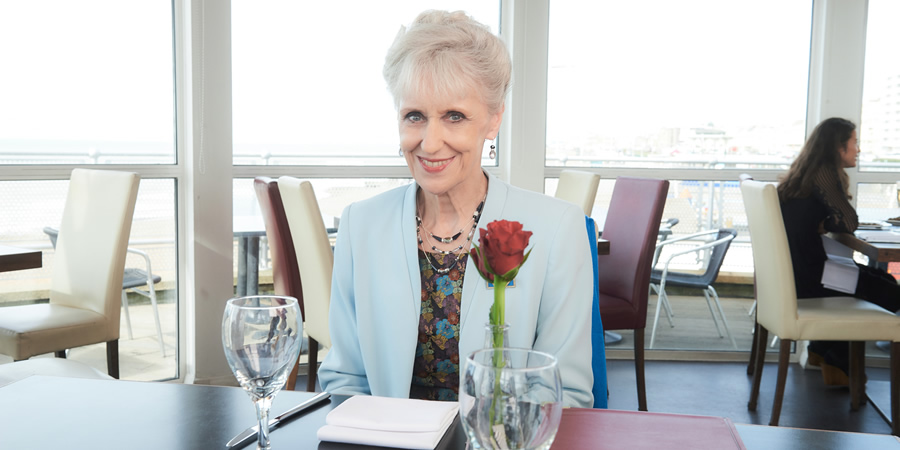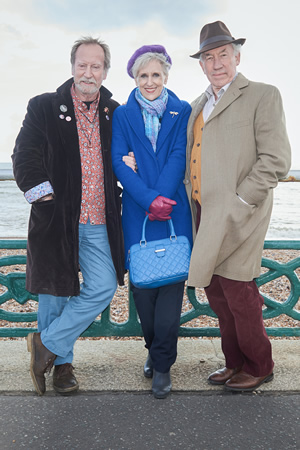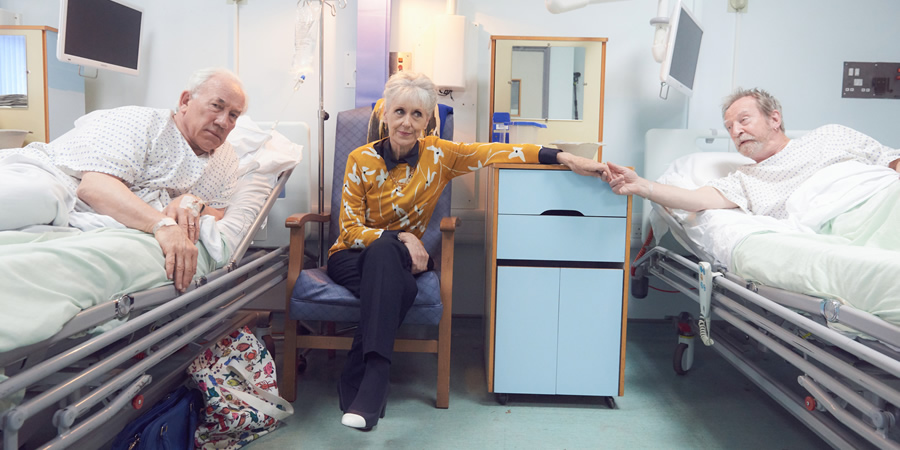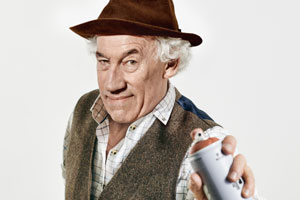Anita Dobson interview

Anita Dobson talks about the 'love triangle' between the characters, and how her husband taught her to 'play' the guitar for an episode in the new series.
Where do we find Margaret at the start of the second series?
She is where we left her at the end of the last season, happily getting on with life. She's great friends with both Henry and Charles. But she's gradually realising that she and Henry are not going to be an item. At first she had an inkling that it might be a good move to have Henry as a companion, but during this season she begins to see that love may lie elsewhere...
So how does Margaret react to being at the apex of a love triangle with Henry and Charles?
She loves it! It's what all women want - to be caught between two very attractive men. They're both so divine! What could be nicer?
As both Anita and Margaret, it's a great joy to be part of that trio and watch the other two because they're both so brilliant. I have such respect for Simon and Bill. Watching them work together has been an absolute treat. They are just a joy to work with. Bill can improvise something out of nothing, and Simon is just on it, on it, on it. They're both lovely to be around.
What draws these three characters together?
We discover that Margaret was a bit of a bohemian in her day, which is why she gets on so well with both Henry and Charles. They're all quite dysfunctional. For instance, Margaret talks to the wheelchair that her dead husband used. They are all as batty as each other, but they accept each other and protect each other.

Do you think Margaret should go out with either of them?
No. It would be a mistake if Margaret got together with either Charles or Henry. These three characters in The Rebel are a triumvirate, like the Three Musketeers. They should stay as a three. If two of them became a couple, it would be over.
Why do you think Margaret has wound up in Brighton?
She fits in well there. She's arty, and Brighton's arty. She refuses to grow up. There's a childlike, joyful, playful energy to her. She loves clothes and dressing up. She's always been a flirt and loves men and dancing and all the things girlies adore. Running a charity shop in Brighton, she's doing something she loves.
The most extraordinary things turn up in charity shops in Brighton. Then the fact that someone like Henry - who is dapper, funny and well-read - would come into her shop made her think that all her Christmases had come at once. They immediately hit it off, as she found smart waistcoats for him. Then along came Charles, and they got on really well, too. Margaret is now surrounded by two adoring men - there's the ring of her heyday about it!
Why do audiences warm to Henry, even though he is permanently furious?
He has reached the stage where he doesn't just tell a boy to stop skateboarding on the pavement - he actually pushed him off his skateboard! He's simply not going to put up with it anymore. That's why he's The Rebel. Margaret and Charles recognise that and relish the fact that Henry is speaking out against these things and not taking them lying down. He is not becoming invisible as society would like him to be. He's not going quietly. He's raging against the dying of the light. He wants to be heard, and as he is played by Simon Callow, he will be heard!
Henry is constantly fuelled by anger. What gets your goat?
I loathe social media. I loathe the fact that everything is available and not private. My husband [Queen music star Brian May] will give a speech, and everyone is filming it, and it's immediately online. Those people are not living in the moment. They photograph life, rather than experience it. I also hate the fact the politeness has gone. People don't say "hello" anymore - they're too busy and they always have their heads in their phones.
In one very amusing scene, Margaret plays the electric guitar expertly. Who taught you to play?
My husband! When Brian played the riff, I thought, "That's exactly right." It was dead easy to him. But I couldn't possibly do it myself. So the scene is me miming to his playing. All Brian said to me was, "Darling, give it attitude." I think I got away with it!
It was great fun to do. I can't wait to see Brian's face when he watches the scene. He'll have a very good laugh. But I know I have no future as a guitarist. My career does not lie in that direction.

What more can be done to help older people?
I think they should start a support group for people our age, the people who can't get through to a person at the bank and constantly have to listen to recorded voices. The support group would be for people who have lost someone and need to feel that they are not the only person drifting around on their own.
When did you first meet Simon?
We worked together when he directed me in The Pajama Game in 1999. We toured the show to Birmingham and Toronto before doing a West End run. But I really started to get to know him when we filmed The Rebel last year.
I absolutely adore him. He is incredibly affable. I've never seen him lose it. He has an astonishing command of the English language and can spit out lines at a rate of knots without drawing breath. He is so witty and amazingly intelligent. In fact, Simon is a lot like my husband. They're both completely driven, and they're both polymaths.
Finally, what does The Rebel show us?
That you can still look good and party on down, whatever age you are. Margaret, Henry and Charles enable each other to display those qualities and not be ashamed of them. Their philosophy is, "If you don't like it, move on!"

